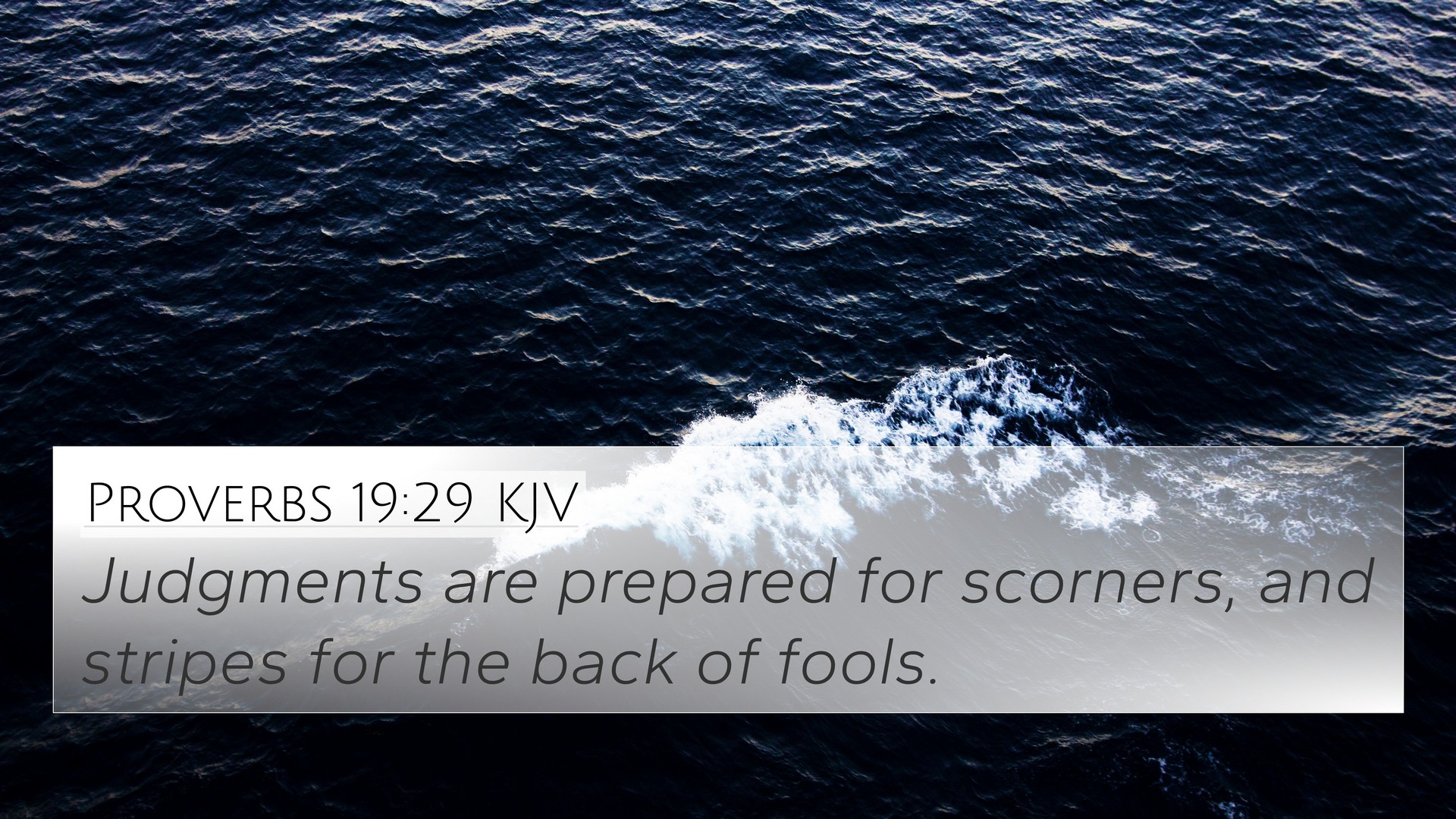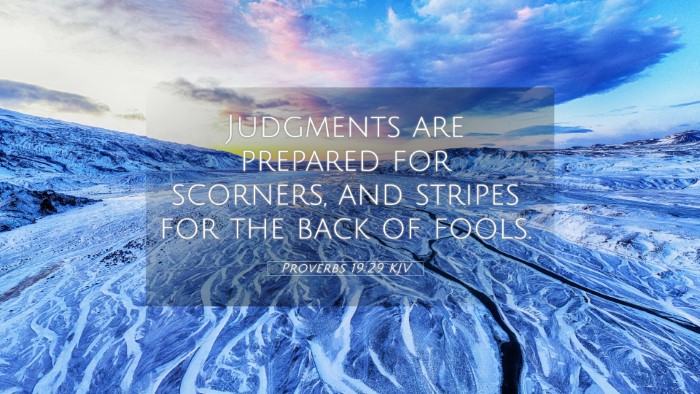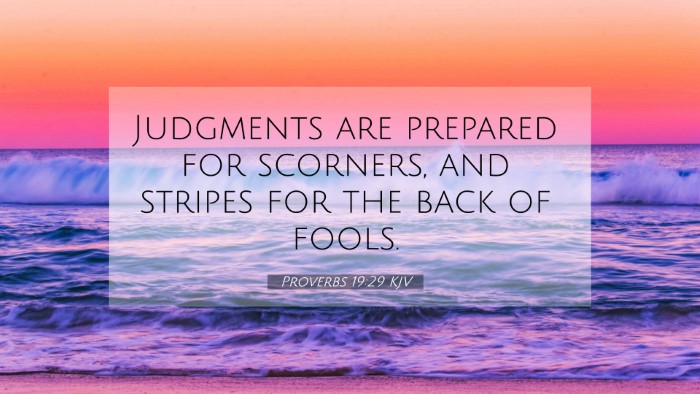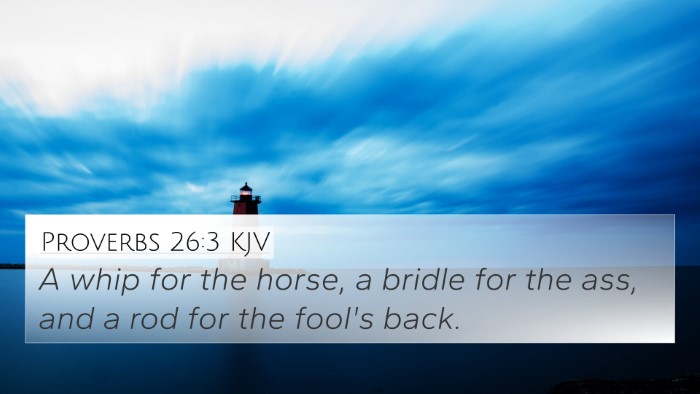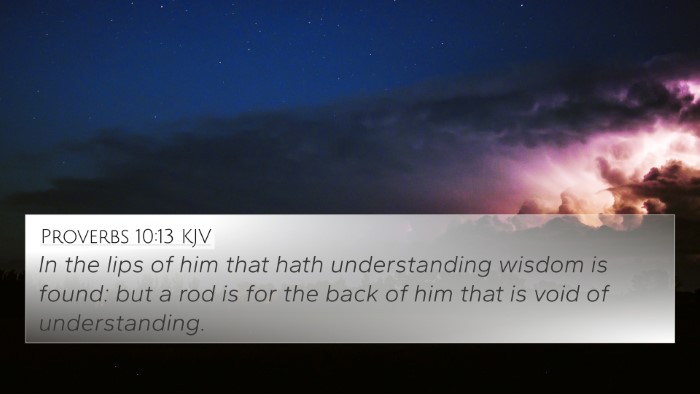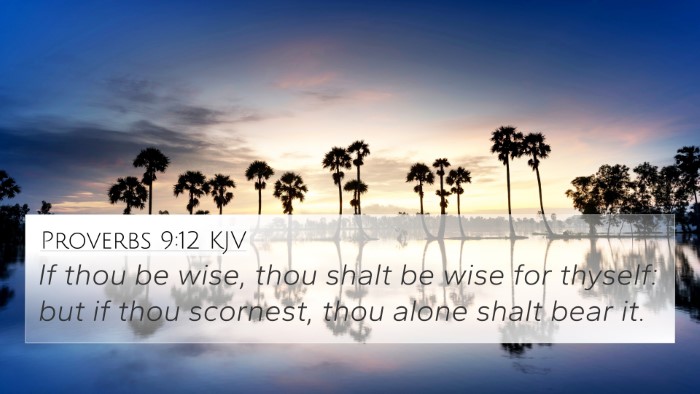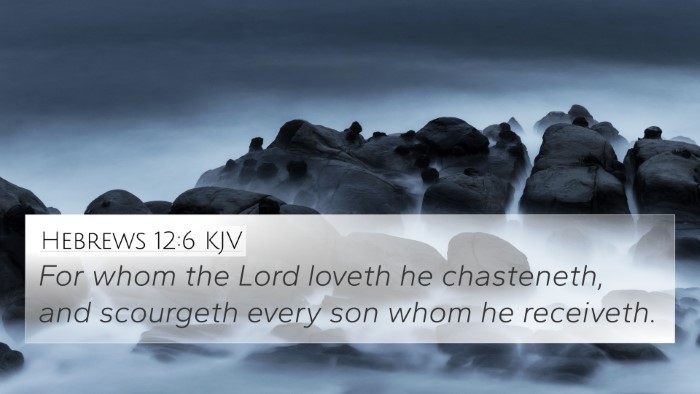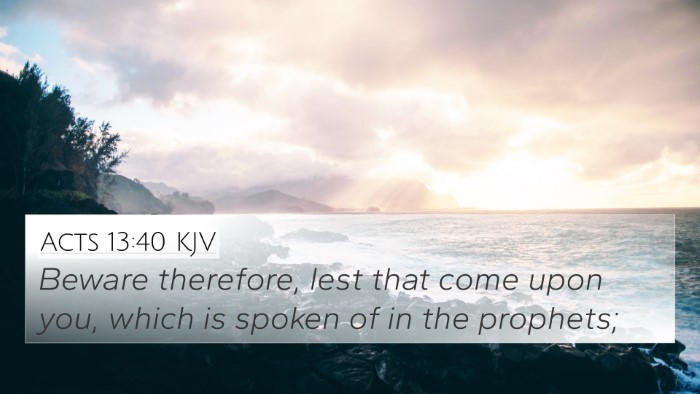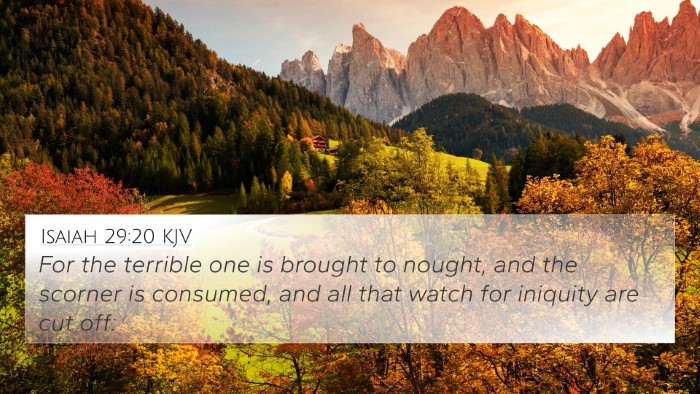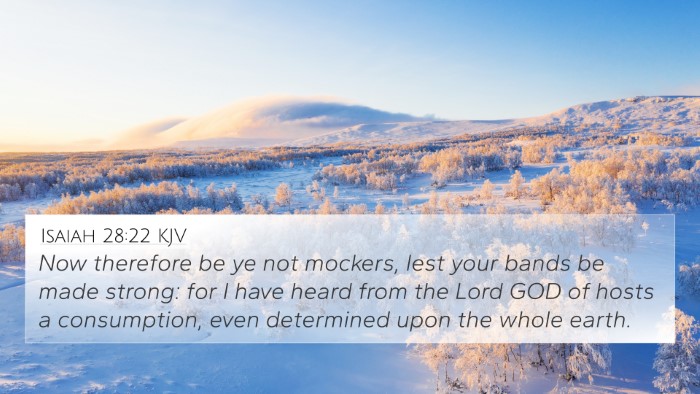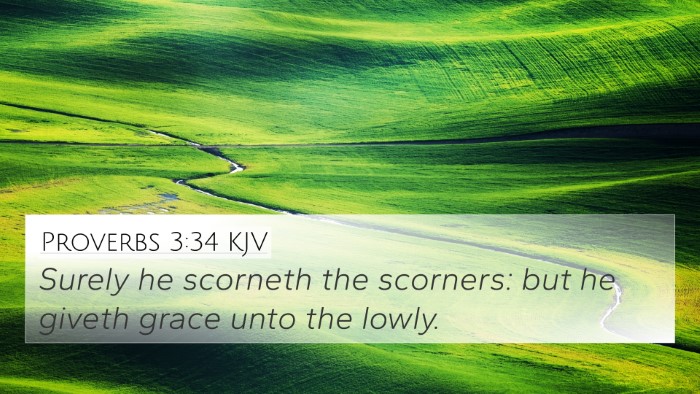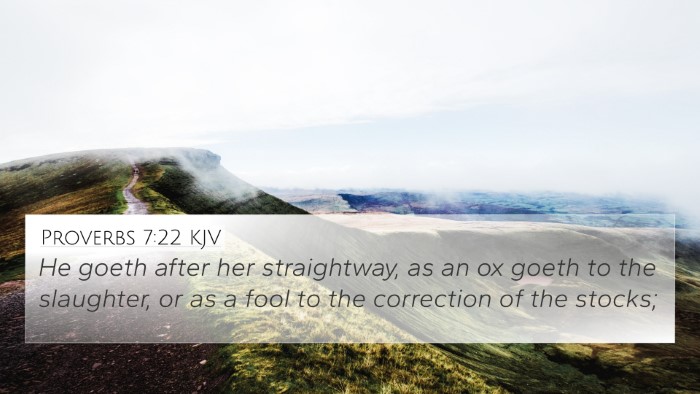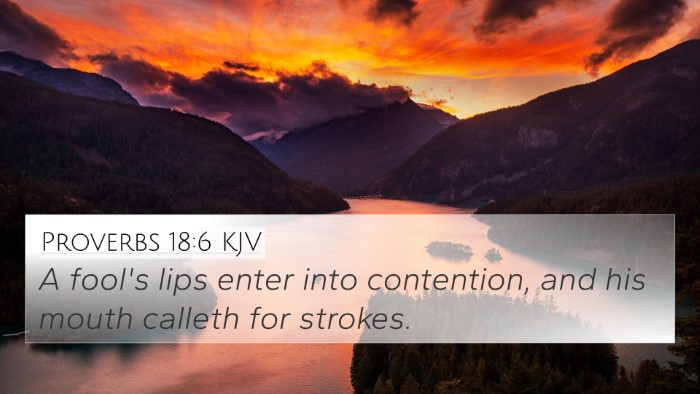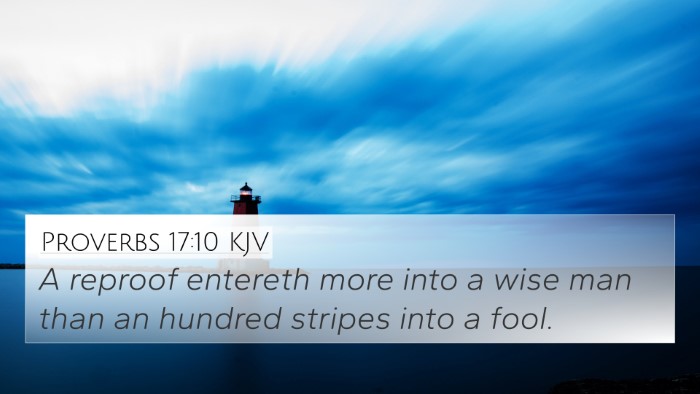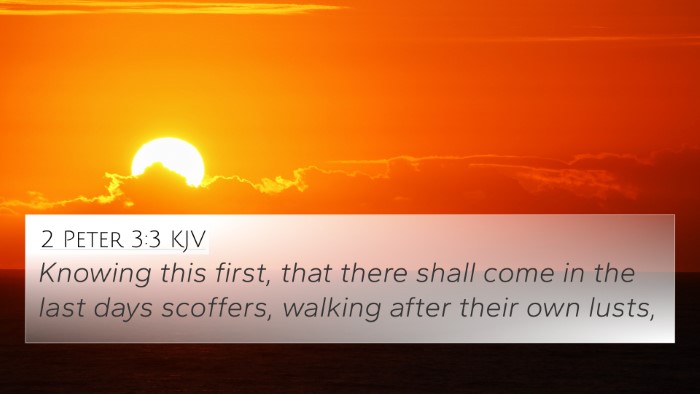Understanding Proverbs 19:29
Proverbs 19:29: “Judgments are prepared for scorners, and stripes for the back of fools.”
This verse deals with the consequences of scorn and foolishness, illustrating the idea that those who mock wisdom and revere folly will ultimately face judgment and punishment.
Summarized Meanings from Commentaries
Insights from Matthew Henry
Matthew Henry emphasizes the inevitability of divine judgment upon those who scorn wisdom. He suggests that scorners, who disrespect wise instruction, are ensured of chastisement. The “stripes” refer to suffering that is a direct result of one's foolish and scornful behavior. Henry encourages readers to avoid the path that leads to such condemnation, highlighting the importance of heeding wise counsel.
Insights from Albert Barnes
Albert Barnes expounds on the nature of scorners, indicating that they are not just simple fools but actively disdainful of wisdom and instruction. He notes that their scorn sets them apart for judgment. Barnes uses the analogy of “stripes” in the sense of correction that teaches through pain, representing the futility of such behavior. He correlates this idea with other biblical teachings on discipline and the consequences of sin.
Insights from Adam Clarke
Adam Clarke points out that the verse serves as a broader warning about the consequences of sinning through scorn and folly. He remarks on the nature of punishment being proportionate to the iniquity that is committed, thus linking this verse to a greater understanding of divine justice. Clarke suggests that it invites reflection on personal behavior and the real ramifications of scornful attitudes.
Key Themes and Cross References
This verse serves as a significant reminder of the themes of judgment and the consequences of our actions. A deeper study into related verses provides clarity and context.
Cross References
- Proverbs 3:34: "Surely he scorns the scorners: but he gives grace unto the lowly." - Emphasizing God's opposition to the scornful.
- Proverbs 15:12: "A scorner loves not one that reproves him: neither will he go unto the wise." - Highlighting the relationship between scorn and avoidance of wisdom.
- Galatians 6:7: "Be not deceived; God is not mocked: for whatsoever a man sows, that shall he also reap." - Illustrating the principle of accountability.
- Hebrews 12:6: "For whom the Lord loves he chastens, and scourges every son whom he receives." - Discussing divine correction and its loving intent.
- Proverbs 10:13: "In the lips of him that hath understanding wisdom is found: but a rod is for the back of him that is void of understanding." - Connects wisdom with consequences for foolishness.
- Proverbs 26:3: "A whip for the horse, a bridle for the ass, and a rod for the fool's back." - Indicates the necessity of correction for foolish behavior.
- 2 Peter 2:12: "But these, as natural brute beasts, made to be taken and destroyed, speak evil of the things that they understand not; and shall utterly perish in their own corruption." - Further affirming the fate of those who scorn understanding.
Thematic Connections with Other Scriptures
The integration of Proverbs 19:29 with other biblical texts shows the overarching biblical principle regarding the care one must take in how they respond to wisdom and instruction.
- The Discipline of the Lord: Hebrews 12:5-11 discusses the necessity of discipline, resonating with the theme of Proverbs 19:29.
- Foolishness vs. Wisdom: Ecclesiastes 7:5, where it is better to hear the rebuke of a wise man than to hear the song of fools, connects to the idea of valuing wisdom over folly.
- The Role of Scorners: Psalms 1:1 speaks about not walking in the counsel of the ungodly, highlighting the danger of associating with scornful individuals.
Practical Application
For contemporary readers, the message in Proverbs 19:29 encourages self-reflection on attitudes towards wisdom and correction. Recognizing the pursuit of knowledge, humility, and understanding is crucial. It warns against adopting a scornful disposition that ultimately leads to destructive consequences.
Conclusion
Proverbs 19:29 is a powerful reminder of divine justice, the importance of wise living, and the consequences of foolishness. Analyzing this verse alongside cross-references enriches understanding, underscoring the need for humility before wisdom and the dangers of a scornful heart in the light of biblical teaching.
